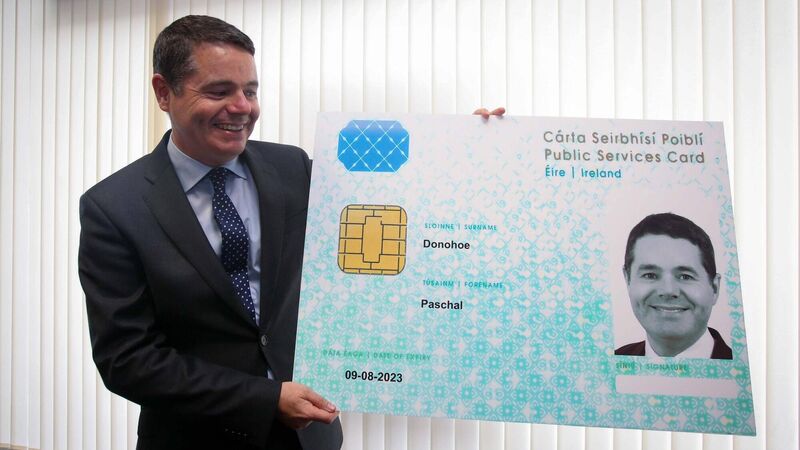Processing biometric data 'an essential component' of how public services card is created, minister admits

Fine Gael minister Paschal Donohoe, at a 2016 press event for the public services card. Picture: Gareth Chaney Collins
The Department of Social Protection has admitted that the processing of biometric data has been “an essential component” of the framework underpinning the public services card (PSC) for the past 12 years.
The department said that this processing is “carried out by the department on the department’s secure IT infrastructure”. It said that the “biometric data is not stored on the PSC, nor is it shared with any other public body”.










